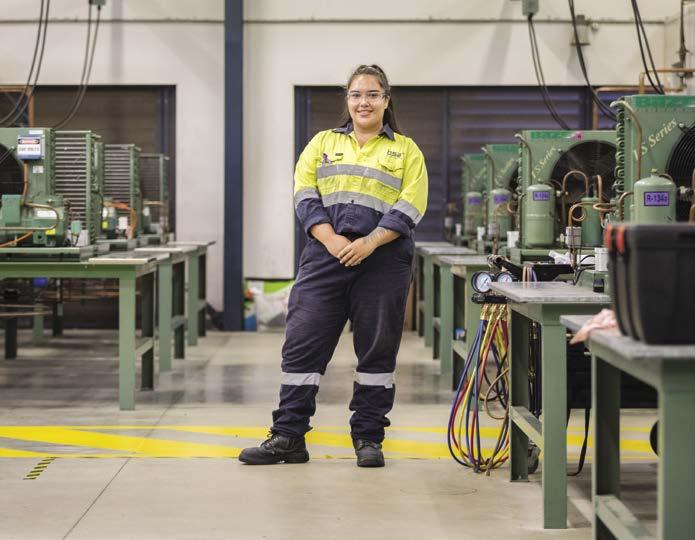Global Update
ISRAEL
CHINA
H2O FROM AC
UNDERWATER DATA
Microsoft is using the waste condensate from air conditioners at its Herzliya, Israel office to irrigate the landscaping at the corporate campus and to help cool the 46,000m2 building. The tech titan uses similar systems in its offices in Twycross in the UK, and Hyderabad, India.
The massive free-trade port of Hainan in China is planning to launch a commercial undersea data centre, based on a prototype tested earlier this year. The facility will operate in 100 airtight pressure vessels on the seabed near the Changjiang nuclear power station.
“We are also considering its inclusion in other Microsoft buildings depending on HVAC design, regional climates and other factors,” says Microsoft senior sustainability program manager Katie Ross.
The project aims to install racks of data centre equipment in pressure vessels, which will be sunk to the seabed at offshore locations. The tiny data centres will be operated through a combined power and internet cable, and cooled by the surrounding seawater.
The innovation saves the Herzliya office three million litres of water – enough to meet the annual water needs of several families.
Microsoft tested and successfully ran a 12-rack data centre off the coast of Scotland for two years, but has no plans to commercialise the technology.
At the moment, air conditioner condensate reuse systems don’t scale efficiently to use in most homes and other small spaces. Yet such systems may prove in the near future to be a useful tool to help make buildings more efficient in terms of water use.
By placing data centres underwater, the idea is that they can be kept cool without using as much energy as traditional above-ground data centres.
The UN has suggested that water is the “primary medium” through which we will feel the effects of climate change. ■
USA
UK
PLAN B
BIG PROMISE FOR MICROWAVE?
Johnson Controls has opted to use R454B to replace R410A in its ducted residential and commercial unitary products. The low-GWP R454B will also be used in air-cooled scroll chillers. Johnson Controls evaluated several low-GWP alternatives on a variety of performance and market metrics, such as safety, capacity, efficiency, reliability, availability and longevity. This decision was made as the US industry prepares to phase out high‑GWP refrigerants under the recently passed American Innovation and Manufacturing (AIM) Act. “Utilising R454B was a clear decision, but one that took years of in-depth research, testing and evaluation,” says Johnson Controls’ Chris Forth. “This decision maximises environmental benefits, which will help to avoid, if not completely avert, a second, near-term transition for the unitary sector. As the AIM Act phase-down schedule progresses, higher-GWP fluids such as R32, while viable today, have the potential to be eliminated as an option due to their high GWP values.” ■ 10
|
HVAC&R Nation
|
And if low-carbon energy from the local Changjiang nuclear power station is used, the project could be carbon-neutral. ■
www.airah.org.au/nation
|
July 2021
UK energy technology company Heat Wayv has unveiled the world’s first microwave boiler intended as a zero-emissions replacement for gas boilers. Originally developed as a portable cooking device for the military, the technology has now been applied to heating. Set to be trialled in 2022, the new boiler is said to offer a range of benefits such as zero emissions, plug-and-play installation and silent operation. “The end of the [natural] gas boiler is inevitable and scheduled,” says company founder Phil Stevens. “But the proposed replacement technologies do not work for consumers, as they are either too expensive to install or too expensive to run. We looked for a clean technology where the boiler would cost the consumer the same to buy, same to install and same to run as a gas boiler.” Heat Wayv co-founder Paul Atherton says the tech offers a more practical solution than hydrogen, with considerably less investment than the billions hydrogen will cost. ■








